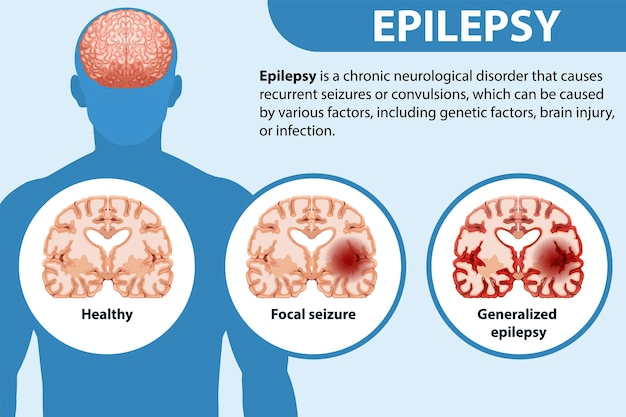
Seizure control in most patients

Seizure control in most patients

Expertise in both surgical and functional techniques like VNS and DBS

Multidisciplinary team for personalized care

Early surgery helps children thrive

Most common neurological disease

65 Million estimated people will have epilepsy at any given time

50% are unaware of the cause of the disease

Most commonly diagnosed before age 20 or after age 65
Epilepsy surgery, a transformative field in neurosurgery, offers a beacon of hope to individuals living with uncontrolled seizures. This intricate surgical approach aims to provide relief and enhance the quality of life for those resistant to medication. At Arete Neurosurgery Hospital in Hyderabad, we specialize in cutting-edge epilepsy surgery techniques under the guidance of skilled neurosurgeons.

Led by experts like Dr. Raveesh Sunkara, our team employs advanced diagnostic tools and personalized treatment plans to pinpoint the source of seizures and determine the most suitable surgical procedures for epilepsy. We endeavor to bring freedom from seizures through meticulous care and innovative techniques and empower individuals to reclaim their lives.
Epilepsy surgery in Hyderabad involves various surgical techniques, such as resection, disconnection, or stimulation devices, to target the specific brain regions responsible for seizures.
“The goal is to minimize seizure activity while preserving essential brain functions,” explains Dr. Raveesh Sunkara. Dr. Sunkara, known to many as the top neurosurgeon in Hyderabad, is committed to delivering compassionate care, precise diagnostics, and tailored surgical approaches. Under his guidance, we ensure that each patient’s journey toward seizure control is met with expertise and unwavering support.
Precision Surgery, Swift Recovery – Get in Touch with Dr. Raveesh
Precision Surgery, Swift Recovery – Get in Touch with Dr. Raveesh.
Symptoms of epilepsy may vary based on the type of seizure a person experiences. Common symptoms include:

“Not everyone with epilepsy experiences all of these symptoms,” adds brain and spine surgeon Dr. Raveesh Sunkara, “and symptoms can vary from person to person.”
If you suspect you or a loved one has epilepsy, please do not delay getting a medical evaluation for accurate diagnosis and appropriate treatment.

Epilepsy surgery in Hyderabad encompasses various techniques tailored to address specific seizure triggers. Some notable surgical options for epilepsy include:
Involves removing the brain area responsible for seizures. Lobectomy (removing a lobe) or lesionectomy (targeting a specific lesion) are common forms.
Partial or complete severing of the corpus callosum, the nerve bundle connecting brain hemispheres, to prevent seizure spread. Corpus callosotomy is typically considered for individuals with severe generalized epilepsy (involving both brain hemispheres) who experience drop attacks (atonic seizures) leading to falls.
Disconnects or removes one hemisphere, mainly for severe cases of epilepsy originating from one hemisphere. These forms of epilepsy surgery are predominantly conducted on pediatric (children) patients with seizures arising from a significant region within one brain hemisphere.
Implanting a device to stimulate the vagus nerve and reduce seizure intensity and frequency.
Involves a device implanted in the brain, detecting and responding to abnormal electrical activity to prevent seizures.
Implants electrodes in specific brain areas, delivering controlled electrical impulses to modulate brain activity and curb seizures.
Precisely targets and destroys brain tissue responsible for seizures using radiation beams. Stereotactic radiosurgery employs advanced 3D imaging to precisely direct high doses of radiation to the seizure focus, minimizing effects on surrounding healthy tissue.
Creates minor cuts in the pathways surrounding the brain surface without affecting critical functions. The transections function by disrupting fibres believed to contribute to the progression of electrical seizure activity.
Removal of the temporal lobe, standard for treating temporal lobe epilepsy.
The choice of brain surgery to treat epilepsy depends on factors like seizure origin, patient health, and goals.
Consulting an expert neurosurgeon like Dr. Raveesh Sunkara ensures the most suitable approach for each individual’s needs. With over 10 years of expertise, Dr. Sunkara is often regarded as the top neurosurgeon in Hyderabad.
On average, epilepsy surgery has shown success rates ranging from 50% to 90% in significantly reducing or eliminating seizures.
Please consult with qualified neurosurgeon Dr. Raveesh Sunkara for personalized information about the potential success rate based on your specific case and circumstances.

Unlock new possibilities with advanced brain surgery
Unlock new possibilities with advanced brain surgery
Several factors can influence the epilepsy surgery cost, such as:

Type of Surgery:
Different surgical techniques have varying prices based on the complexity and resources required.
Location:
Costs may vary based on the city or region where the hospital is located.
Hospital Reputation:
Renowned hospitals may charge higher fees due to their expertise.
Hospital Facilities:
Advanced equipment, technology, and amenities can increase overall costs.
Surgeon’s Experience:
Epilepsy surgeons with extensive experience and specialization may charge more for their services.
Medical Team:
Additional medical professionals involved in the surgery and care can affect costs.
Pre-Operative Tests:
Diagnostic tests and evaluations before surgery can add to the total expenses.
Post-Operative Care:
Costs related to recovery, medications, and follow-up appointments.
Room Type:
The hospital room category chosen can significantly impact the final bill.
Complications:
Any unexpected complications during or after surgery might incur extra expenses.
Insurance Coverage:
Insurance policies and coverage can affect out-of-pocket expenses.
If you or a loved one is considering brain surgery for epilepsy, please have a detailed discussion with the highly-skilled epilepsy surgeon Dr. Raveesh Sunkara to understand the specific factors that can contribute to the overall cost of epilepsy surgery.
Eligibility for epilepsy surgery depends on several factors and typically includes:
Dr. Raveesh Sunkara says, “Epilepsy surgery involves a comprehensive evaluation process to identify candidates who can benefit from surgical intervention.”

Here are a few reasons why you may want to consider Dr. Raveesh Sunkara for Epilepsy Surgery in Hyderabad:
Expertise: Dr. Raveesh Sunkara is a skilled neurosurgeon with over 10 years of specialized experience in epilepsy surgery.
Advanced Techniques: He is well-versed in the latest surgical techniques and technologies for effective epilepsy treatment.
Multidisciplinary Approach: He collaborates with specialists to ensure comprehensive care and accurate diagnosis.
Diagnostic Precision: Dr. Sunkara uses advanced diagnostic tools to precisely locate seizure origins, enhancing surgical success.
Proven Track Record: Dr. Sunkara is respected in the medical community and among patients for his expertise and dedication. He has a history of successful epilepsy surgeries and positive patient outcomes.
Patient-Centric Approach: Dr. Sunkara provides personalized treatment plans tailored to each patient’s unique condition and needs. He educates patients about their condition, treatment options, and expected outcomes. He prioritizes patient well-being, involving them in decisions and providing compassionate care.
Holistic Care: Beyond surgery, Dr. Sunkara focuses on post-operative management, rehabilitation, and long-term support.
State-of-the-Art Facility: Arete Hospital is equipped with modern facilities to ensure optimal surgical outcomes.
Continued Research: Dr. Sunkara is engaged in ongoing research, ensuring his practice remains at the forefront of epilepsy treatment.